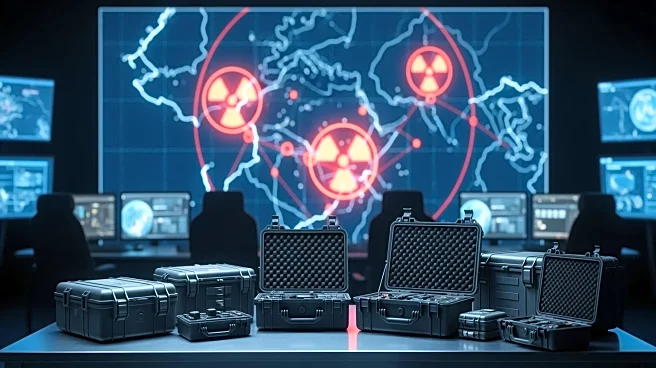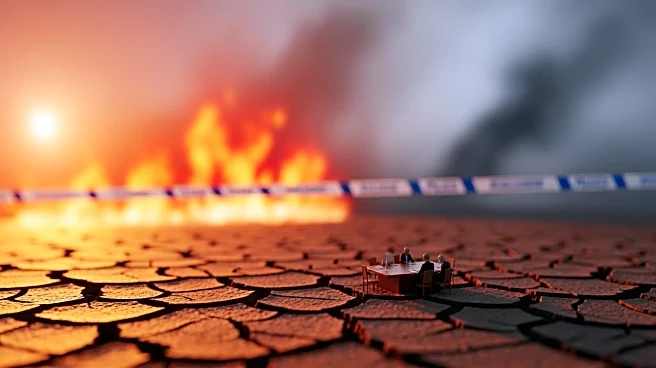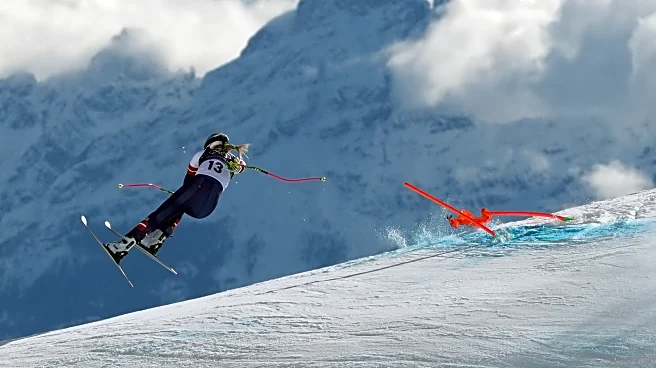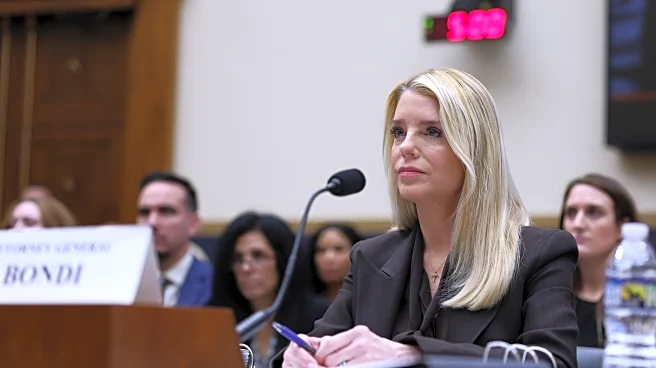What's Happening?
Russian Foreign Minister Sergey Lavrov outlined new conditions for a potential summit between President Vladimir Putin and Ukrainian President Volodymyr Zelensky, stating that no meeting is currently planned. Lavrov emphasized that Russia has an agenda that must be agreed upon before talks can occur. The preconditions include Ukraine's agreement to not join NATO, discussions on territorial issues, and the cancellation of legislation prohibiting the Russian language. Despite President Trump's efforts to organize a bilateral meeting to end the war, Lavrov's remarks indicate that Russia is stalling the process. Trump has been actively engaging with European leaders and Zelensky to facilitate a resolution.
Why It's Important?
The preconditions set by Russia for a summit with Ukraine highlight the complexities of the peace process. These demands could hinder progress in negotiations and prolong the conflict. The situation affects international diplomacy, as Western countries support Ukraine's aspirations for NATO membership and security guarantees. The outcome of these talks could influence global security arrangements and the balance of power in Eastern Europe. President Trump's involvement underscores the U.S. role in seeking a resolution, but the challenges posed by Russia's conditions may require further diplomatic efforts.
What's Next?
The next steps involve continued diplomatic engagement by President Trump to address Russia's preconditions and facilitate a meeting between Putin and Zelensky. The international community will watch closely for any developments, as they have significant implications for regional stability and global security. Potential reactions from Western countries could include increased support for Ukraine or further sanctions against Russia. The situation remains fluid, with ongoing negotiations and diplomatic efforts required to reach a resolution.










